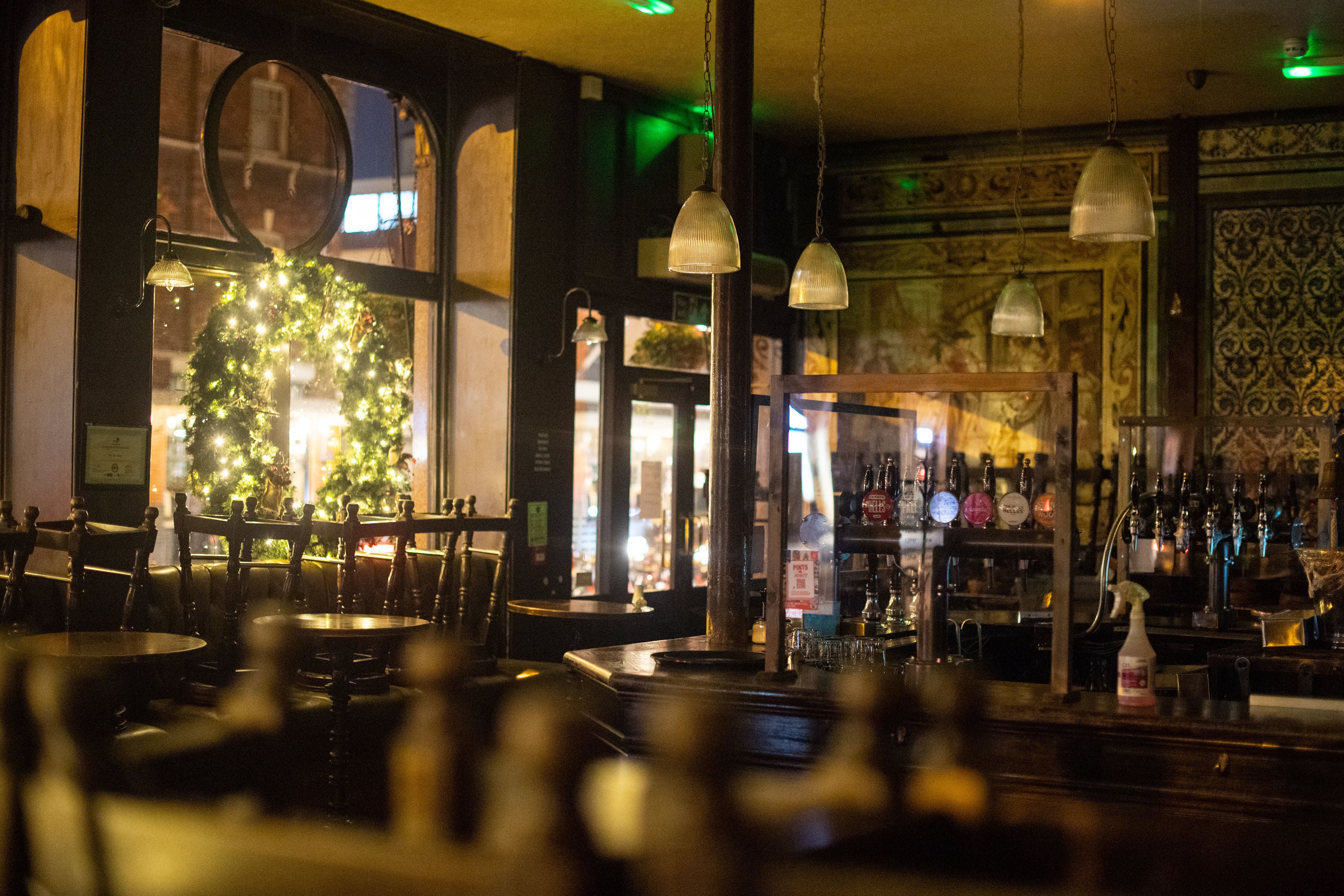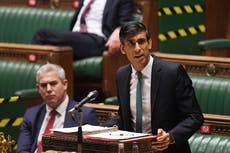Pubs, bars and restaurants criticise ‘devastating’ tier 2 and 3 restrictions across most of England
Industry warns of huge job losses as most of England to be placed under tough measures from next week

Your support helps us to tell the story
From reproductive rights to climate change to Big Tech, The Independent is on the ground when the story is developing. Whether it's investigating the financials of Elon Musk's pro-Trump PAC or producing our latest documentary, 'The A Word', which shines a light on the American women fighting for reproductive rights, we know how important it is to parse out the facts from the messaging.
At such a critical moment in US history, we need reporters on the ground. Your donation allows us to keep sending journalists to speak to both sides of the story.
The Independent is trusted by Americans across the entire political spectrum. And unlike many other quality news outlets, we choose not to lock Americans out of our reporting and analysis with paywalls. We believe quality journalism should be available to everyone, paid for by those who can afford it.
Your support makes all the difference.The government’s decision to place much of England under tough new tier 2 and 3 restrictions is “devastating” for pubs, bars and restaurants at a crucial time of year, hospitality industry figures have said.
From 2 December, pubs in all but three council areas will either be closed or only be able to open if they are serving substantial meals, the government announced on Thursday.
Ahead of the announcement, executives from some of the largest brewers demanded that the government publish scientific backing for its public health measures.
Lucy Yardley, a member of the government’s Scientific Advisory Group for Emergencies, has said mixing in homes is more likely to spread the virus than in public spaces like bars and restaurants.
Mixing between households inside is only allowed in tier 1 areas, and nearly 99 per cent of England falls under tier 2 and tier 3 level restrictions.
More than 31,000 venues in tier 3 areas will have to remain closed after 2 December, while a further 21,000 pubs and wine bars in tier 2 areas will have to shut unless they can begin to offer a restaurant service, according to property consultancy Altus.
Simon Emeny, chief executive of brewer Fuller’s, said that some of the company’s pubs would not be viable under tier 2 restrictions.
“The problem with Tier 2 is that it was already tricky but has changed to make trading even harder,” he told the PA news agency.
“The need to offer substantial meals means some of [our] London pubs are not viable – we can not build a kitchen in four days.
“It’s really challenging on our supply chain as well. We’d typically want the cask beer arriving in our pubs today to reopen next week so only finding out today has given us an uphill task, but we are rising to it, as are our suppliers.”
Essex publican Adam Brooks tweeted his support for business owners in tier 3 areas who cannot open.
“Takeaway isn’t viable,” he said. “The hospitality sector has been targeted disproportionately and risks collapse.”
Michael Kill, chief executive of the Night Time Industries Association, said the news was “devastating”, particularly for the midlands, north of England, Manchester, Birmingham and Newcastle, which are among the areas under the strictest rules.
He said there are now “diminishing hopes of trading through the key festive period for many, with a long winter ahead fighting to survive”.
“Industry and business leaders are speaking up, highlighting the immense impact of restrictions to their sector, individual companies releasing huge redundancy figures, business owners suffering from mental health, and suicide rates within the sector steadily increasing.”
Nik Antona, chair of the Campaign for Real Ale, said the government's move would increase feelings of isolation and loneliness in the run-up to Christmas.
“It is really very simple – hospitality businesses have been singled out for extra restrictions, so they must be given dedicated support,” he said.
“This needs to take the form of increased grant funding to cover rent and costs, and include an extension to the business rates holiday, and an extension of the VAT cut to alcoholic drinks.”
Ahead of the announcement, pub and brewery bosses pleaded with the prime minister to save an industry facing the darkest of moments.
In a letter to the government, executives of 50 companies – including Fuller’s, Carlsberg UK, Greene King and Heineken – warned of huge job losses as a result of “exceptionally harsh and unjustified treatment”.
They wrote: “We believe it is in the interests of openness and transparency that any evidence showing pubs to be the source of outbreaks of the virus, and thereby justifying these extra restrictions, must be published immediately.”
The pandemic has severely affected the hospitality industry and continued public health measures threaten to reduce sales through a crucial time of year where pubs and restaurants generate income that helps them through the quiet months of January and February.
Businesses severely affected or forced to close because of lockdown measures can apply for local support grants but many have complained that funds still have not arrived.




Join our commenting forum
Join thought-provoking conversations, follow other Independent readers and see their replies
Comments